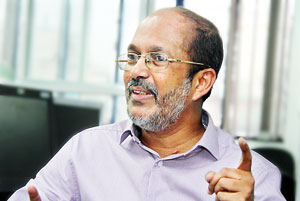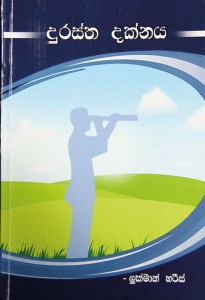Sunday Times 2
“Dhurastha Dhaknaya”: Lukman Harees’ poetry on social injustice

Lukman Harees
Civic rights activist and trade unionist, Lukman Harees who has a degree in law and a post graduate degree in business management, is a strong advocate for social justice. Migrating to Britain in 2004, he writes of injustice from a bystander’s perspective.
Born and raised in Sri Lanka, Harees speaks of his homeland with deep fondness in his recent publication of poems, “Dhurastha Dhaknaya” which was launched on December 12 in Galle Fort, the author’s hometown and a place he describes as an emblem of national reconciliation.
In 2012, he released his first English publication “Mirage of Dignity on the Highways of Human ‘Progress’ – the bystander’s perspective.
The inspiration for this collection of poetry is the challenges communities around the world face due to social injustice. Seeing the oppression and the aggression so many have to live with, Harees explores the root causes and gives readers a perspective of how some leaders from around the world exploit “the silence” and divide communities by voicing unheard thoughts.
Harees also states that “sensationalised journalism” and what he refers to as “quick information” of social media propaganda and gossip columns only further distort and fuel the fire of social injustices.
Throughout the book the author asks for a “live and let live” approach to life and asks that social injustices like racism remain a “fringe activity and not become mainstream”.
On a more personal note Harees looks into the inner workings of his own community, “Should we be Muslims of Sri Lanka as against Muslims in Sri Lanka”. Paraphrasing his statement Harees adds that nationals from any country should preserve their dual identity putting aside the philosophies of “who came first” and should instead rejoice for being “part of this country”.
Living in both Sri Lanka and Britain – Harees strongly believes that“national progress depends on national reconciliation”.
In the book he explores the personal conflict he had with his own faith and how he found inner peace.
From the entire collection the author has a special sentimental attachment to the seventh poem “Adivegi Divi Peveth” (the fast track of life). The poem explores how people can be manipulated through “fast information” and how the older generation had time to listen, converse and form their own opinions.
Over the years Harees found that his English publications were not reaching the intended audience. He decided to reach out to the grassroots with his message of national reconciliation and harmony through this publication “Dhurastha Dhaknaya.
The poems written in simple and fluent Sinhala are for Sri Lankans of any background.
“Dhurastha Dhaknaya” will soon be released in leading bookshops islandwide.

